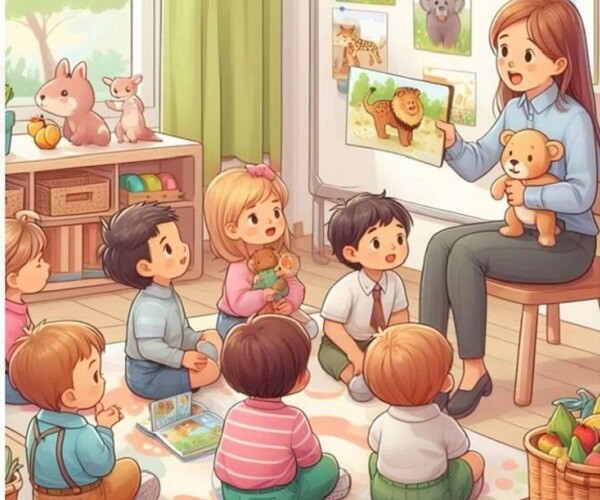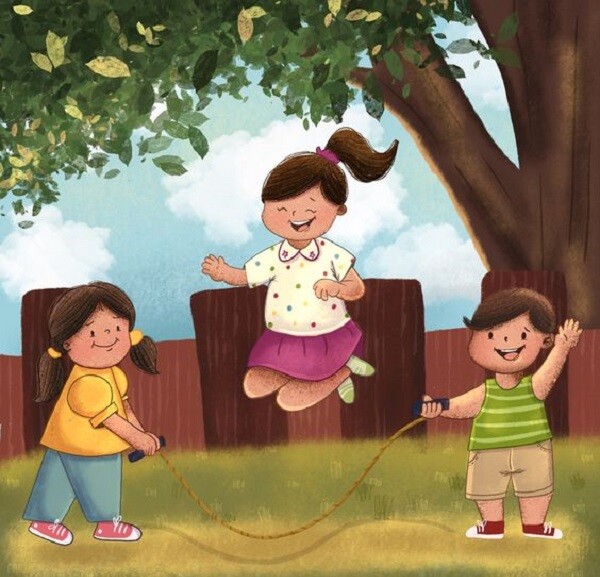Educating children is similar. When a child’s development doesn’t meet their parents’ expectations, instead of blaming the child, it’s essential to reflect on and address any shortcomings in the parenting approach.
Children grow through distinct stages, each with unique psychological traits and parenting priorities.
If parents continue using yesterday’s methods, they inadvertently rob their children of tomorrow. However, when parents understand these stages, they gain the insight needed to foster exceptional children.


Ages 9–11: Elementary School—Instilling Habits
A behavioral specialist once conducted a study involving thousands of children from fourth grade to junior high. He assessed their knowledge, abilities, and habits through a series of tests.
Surprisingly, while knowledge and ability scores improved, habit scores remained relatively stagnant.
He concluded that the elementary years are pivotal for habit formation. Fourth to sixth grade is the prime time to reinforce good habits. During this phase, children who develop positive habits gain long-term benefits for learning and life. It’s also the best time to rectify negative habits.

Specialist Krylov asserts, “If talent is not cultivated, it will weaken over time. If talent is shackled by laziness, even the strongest ambition will be futile.”
A child, regardless of intelligence, who lacks self-control and indulges in laziness will only accumulate inertia, stifling their talent. Thus, cultivating positive habits demands countless efforts and perseverance.
Conversely, negative habits form effortlessly. All it takes is an idle child and indulgent parents.
Educator Ye Shengtao affirms, “The essence of education is habit formation.”
Children are inherently playful, and without good habits, they’ll struggle to resist the allure of external temptations.
Foresighted parents focus on instilling three habits to nurture self-discipline.
1. Foster a Love of Learning and Positive Habits
– Regularly practice calligraphy to enhance neatness, attention to detail, and productivity.
– Encourage active thinking and independent research when encountering problems. Reinforce learning through regular revision.

2. Cultivate a Reading Culture and Broaden Horizons
– Reading enriches vocabulary and enhances language expression skills.
– Elementary students have ample free time. Parents can utilize this by taking them to libraries, reading together, and fostering a reading habit.
3. Emphasize Physical Exercise and a Healthy Body
– A healthy body is the foundation for academic and life pursuits.
– Parents can engage children in outdoor activities like walking, ball games, and hiking to reduce stress and boost energy for learning.

Ages 12–14: Junior High—Increased Parental Involvement
Adolescents need their parents more than they realize.
Many parents of teens have a litany of complaints:
“Sensitive, rebellious, hard to manage, defiant, poor communication, frequently running away from home…”
Is adolescence the root of all these problems?
Educator Chen Yu asserts, “Don’t blame your child’s issues on ‘teenage rebellion.’ Not all teenagers are destined for rebellion. If their personal development isn’t stifled, their inner needs are met, and healthy communication is established, why would they rebel?”

The book “Decoding Adolescence” states that the physical and mental changes during this phase are akin to a violent storm. All seemingly rebellious and distant teens crave strong parental support.
No matter how tough or aloof they seem, it’s a facade. Every act of distancing is a cry for closeness.
Thus, parents must understand that adolescents need their family more than we think. With patience, empathy, and companionship, parents can forge a deeper connection with their teens.
Writer Rao Xueman says, “Friendship is the best form of education; it’s about different ways of accompanying them.”
When dealing with teens, parents should focus on three areas to help them navigate this stage successfully.
1. Teach Emotional Regulation
– Those who master their emotions master their lives.
– Parents should guide their teens to confront their emotions, whether academic stress, anxiety, or depression. Help them uncover the root causes and actively address them.

2. Build Resilience to Stress
– While junior high is stressful, it pales compared to the college entrance exam.
– It’s ideal for training teens to endure stress, face failures, and embrace challenges. Encourage them to view failures as stepping stones to success and build resilience for future storms.
3. Guide Them in Navigating Romantic Emotions
– It’s normal for teens to experience romantic feelings. However, parental over-involvement can hinder their psychosocial development.
– Create a safe space for open conversations about the pitfalls of early relationships. Help them build healthy relationships based on mutual effort and respect.

Ages 15–17: High School—Learning to Let Go
Philosopher Fromm asserts, “Without respect, love can turn into domination and possession.”
Children are unique individuals with their paths and aspirations.
They are not tools for parents to fulfill their dreams or showcase their success.
When parents learn to let go, they empower their children to thrive independently.
Author Anna Quindlen says, “The truest form of parental love is not keeping them by your side but fostering their independence and knowing when to let go.”
Parents should focus on three areas to grant their teens freedom and autonomy.
1. Allow Them to Make Choices
– Parents can tour college campuses, explore various departments, and offer suggestions without dictating decisions.
– Letting teens set goals based on their interests ignites their passion and motivates them to learn proactively.
2. Encourage Exploration and Mistakes
– Life is a long journey, and mistakes are part of the process.
– Mistakes are not something to fear. They indicate that your teen is exploring, discovering themselves, and learning. Guide them to recognize and learn from their mistakes.

3. Foster Independence
– The greatest gift parents can give their children is not sheltering them from life’s storms but teaching them to weather them.
– Equip them with essential life skills like laundry, basic cooking, communication, and social skills.
– Prepare them to thrive independently when they leave the nest.
A passage in “Kafka on the Shore” reads, “A child is like a seed, and the family is the soil and water. If the soil and water are poor, the seed won’t grow, and the plant will wither.”
Child-rearing is a lifelong journey. Not only do children need to grow, but parents also need to evolve. The greatest blessing a child can have is parents willing to change for their sake.
“The 3 Life Transition Stages: Nurturing Children Towards a Successful Future”
The journey of parenthood is full of surprises as your child grows and develops. Their personalities, behaviors, and psychological needs evolve, and so it’s important for parents to adapt their parenting techniques accordingly. Understanding the unique needs of your child at each stage of their life is key to providing them with the best care and support.
The Four Phrases Parents Often Use That Hurt Their Children’s Feelings
“Unknowingly, parents often utter phrases that can instill fear and leave lasting impressions on their children’s minds. The following four phrases are commonly used by parents, but it’s time to reconsider their usage and explore alternative approaches to ensure a positive and empowering environment for our little ones.”








































